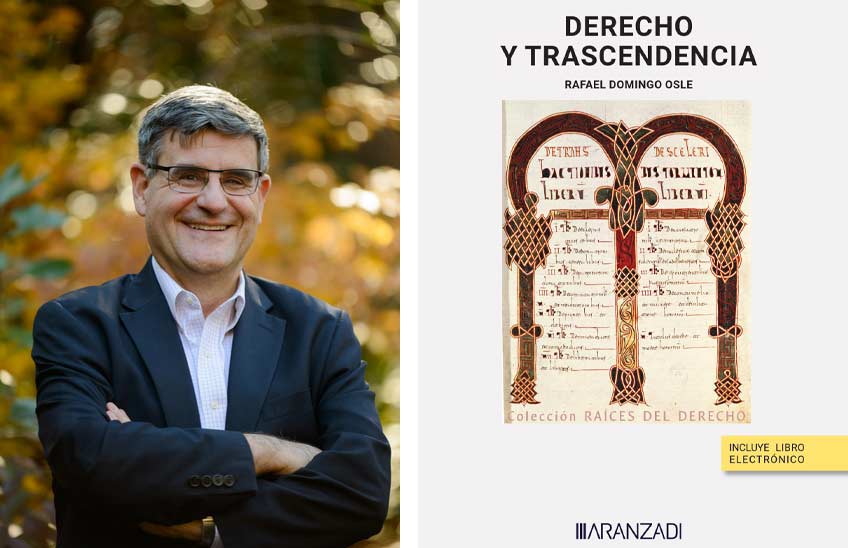"Christianity has offered Western legal culture a framework that has allowed it to flourish."
Rafael Domingo, head of the Chair Álvaro d'Ors of the ICS, has published the book 'Derecho y transcendencia', in which he reestablishes the connection between spirituality and justice, religion and law, theology and jurisprudence.

21 | 03 | 2023
Law and Transcendence is the new book by Rafael Domingo, Full Professor of Law at the University of Navarra. The Issue inaugurates the collection 'Raíces del Derecho' of the publishing house Aranzadi, which is the result of a partnership between the Center for the Study of Law and Religion of the Emory University, where Domingo is Spruill Family Professor of Law and Religion, and the Chair Álvaro d'Ors del Institute for Culture and Societywhere he is a tenured professor.
In this Issue, the author tries to re-establish the connection between spirituality and justice, religion and law, theology and jurisprudence. Thus, he defends "a transcendent perspective of law, contrary to the dominant secularist current". The professor recalls that if the era of globalization and new technologies is not "spiritualized and solidarized", also in the legal sphere, "it will be oppressively belligerent and destructive".
"The triad "love, communion and gift", which in my opinion explains spirituality, is deeply interconnected with the juridical triad of "justice, agreement andlaw"," he emphasizes. "When justice is open to love," he adds, "when agreement seeks full communion with others, and rights are seen as gifts received and not as juridically enforceable self-interests, orders become spiritualized.
For Professor Domingo, the birth of the European Union is a good example of the connection between spirituality and law: "The first crucial steps in the long process of European integration after the Second World War were made possible, at least in a Degree B , thanks to the spiritual stature of the so-called European founding fathers: Konrad Adenauer, Robert Schuman, Jean Monnet, Alcide De Gasperi and Joseph Bech, among others".
"They were able to build a new Europe from the blood shed on and off the battlefields, anchored in the spiritual values of reconciliation and communion and overcoming any subject of domination, revenge and retaliation," he comments.
Flowering of Western legal culture
Likewise, researcher recalls that Western juridical culture found in Christianity "a framework of action and development that has allowed it to flourish". In his opinion, it is enough to think of the Christian doctrine of the image of God, "which supports human dignity and the radical equality of all human beings and places the human person, and not the State, at the center of the legal system". He also mentions that the principle of subsidiarity "is a Christian invention".
On the other hand, he stresses that the right to religious freedom "owes much to the Protestant Reformation, as did federalism or the birth of written constitutions, for example".
Regarding the defense of religious freedom, he notes that "based on the ideas of neutrality, objectivity and equality of rights and freedoms, some scholars claim that it should be reduced to mere freedom of conscience when not included in the framework of a more general right called "ethical independence"".On the other hand, in this book he argues "the intrinsic value of religion and the need to protect it legally as such".
The 'Roots of Law' collection is directed by John Witte Jr., professor at Emory University, and Rafael Domingo, and will be funded by the Funciva and Maiestas Foundations. The books will be in open access six months after being published in print, however, this first degree scroll has been published in print and open access at the same time to promote the collection.
The purpose of the collection is "to lead in the Spanish-speaking world a deep and serene reflection on the major issues of law in pluralistic democratic societies," explains Professor Domingo. It also aims to "establish a bridge between the English-speaking world and the Spanish-speaking world, gathering in Spanish "the best of the best" that is published in the United States and English-speaking countries," he points out.
